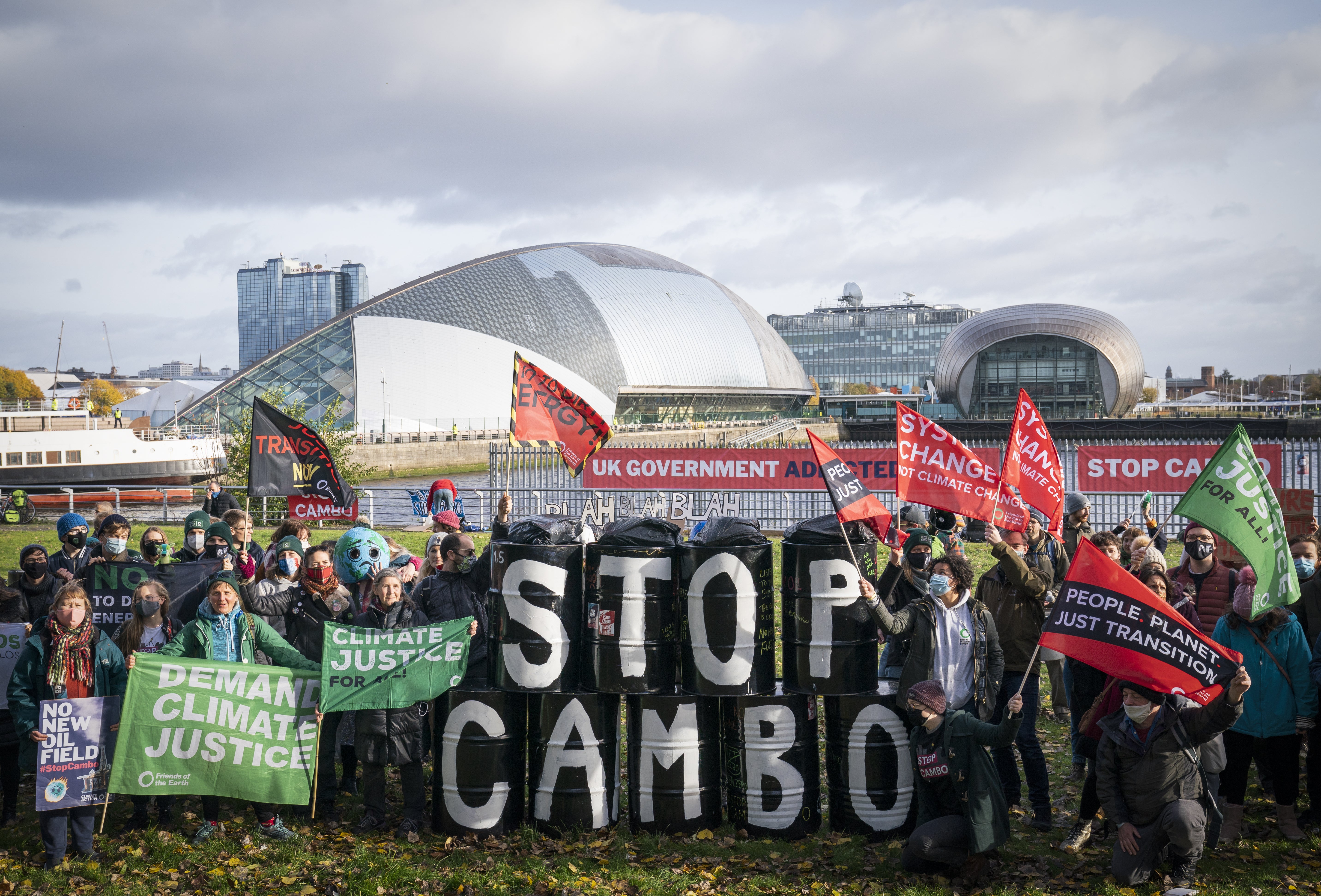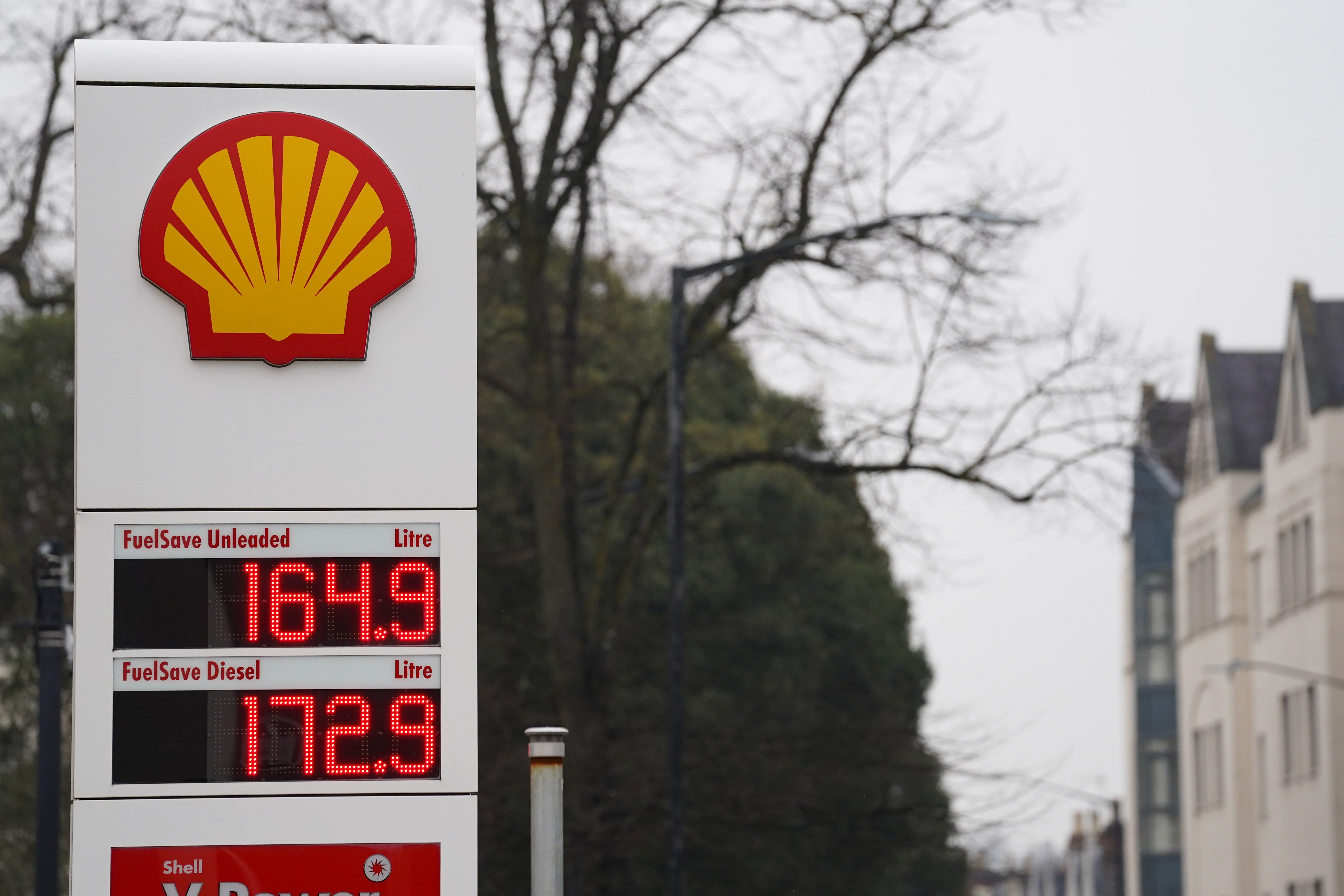‘We face existential crisis’: Campaigners condemn reports Shell ‘reconsidering’ pulling out of Cambo oilfield
Reinvesting in Cambo would be ‘a giant step in the wrong direction’

Your support helps us to tell the story
From reproductive rights to climate change to Big Tech, The Independent is on the ground when the story is developing. Whether it's investigating the financials of Elon Musk's pro-Trump PAC or producing our latest documentary, 'The A Word', which shines a light on the American women fighting for reproductive rights, we know how important it is to parse out the facts from the messaging.
At such a critical moment in US history, we need reporters on the ground. Your donation allows us to keep sending journalists to speak to both sides of the story.
The Independent is trusted by Americans across the entire political spectrum. And unlike many other quality news outlets, we choose not to lock Americans out of our reporting and analysis with paywalls. We believe quality journalism should be available to everyone, paid for by those who can afford it.
Your support makes all the difference.Climate campaigners have condemned reports that Shell is reconsidering its decision to pull investment from the controversial Cambo North Sea oilfield, saying any such move would be a “giant step” in the wrong direction.
It has been reported that the oil and gas giant is reconsidering its plans to scrap development of the Cambo oilfield off the Shetland Isles.
The BBC quoted sources close to the matter as saying the economic, political and regulatory environment had changed since it made its decision to pull investment from Cambo oilfield in December, even if the company’s official position had not.
Reports of Shell reconsidering the move have faced widespread backlash, with Harriet Lamb, CEO of climate charity Ashden, saying the world faces “an existential crisis due to our over-reliance on fossil fuels”. She added: “The solution cannot possibly be to rely more on fossil fuels.”
The Independent has not verified claims in the BBC’s report and a spokesman for Shell said its position had not changed since the end of last year, when the business concluded that the economic case for investment in the project was “not strong enough”.
Crude oil prices have spiked in the wake of Russia’s invasion of Ukraine and the UK has announced plans to phase out Russian oil and oil products, which account for 8 per cent of UK demand, by the end of this year. Soaring energy prices are also exacerbating a broader cost of living crisis in Britain.
In the coming days, Boris Johnson is due to announce an energy security and supply strategy that is expected to increase extraction of gas and oil from the North Sea, as well as map out how the UK can replace Russian fossil fuels with alternative supplies, nuclear and renewables.
The Cambo North Sea oilfield has long been firmly opposed by climate activists, and campaigners and policy analysts have now rejected that there is a new case for investing in the site due to soaring oil prices or the need for energy resilience in the UK.
“There’s absolutely no evidence that more North Sea extraction will reduce bills or enhance our energy security,” said Heather Plumpton, a policy analyst at Green Alliance, an environmental think tank and charity. “Shell isn’t on the side of people struggling with rising energy bills, it will sell the oil and gas to the highest bidder.”
Climate activists and energy analysts have instead called for the government to accelerate its transition to renewables and better insulate buildings in Britain.
The BBC’s report comes as new analysis from a climate scientist at the University of Manchester found that rich countries, such as the UK, must end oil and gas production by 2034 to keep the world on track for 1.5C – as outlined by the Paris Agreement.
Shell’s decision in December to pull investment from Cambo came shortly after the Cop 26 climate summit in Glasgow, where a pact was reached that expressed “alarm and utmost concern” at the fact that human activities have caused around 1.1C of warming. The agreement also called on parties to phase down inefficient fossil fuel subsidies.
Helen Clarkson, CEO of the international nonprofit Climate Group, said that reinvesting in the Cambo oil field would be inconsistent with the goals of Cop 26 and Shell’s own commitments and would be a “giant step” in the wrong direction.

“This is the climate decade and we have to halve emissions by 2030 to hit net zero by 2050,” she said. “We can’t get lost in short-term thinking. Every decision and investment must have net zero at its centre.”
Shell plans to become a net zero emissions energy business by 2050, “in step” with society’s progress towards the goal of the Paris Agreement, according to its website. The 2015 climate agreement’s goal is to limit global warming to well below 2C, and preferably to 1.5C, compared to pre-industrial levels.
A spokesperson for Shell said the company’s total oil production peaked in 2019 and that the company expects it to continue declining until 2030, including through divestment. The company would continue to provide society with the energy it needs and support national energy security by producing oil and gas in the North Sea, but was at the same time reshaping its portfolio and growing its lower-carbon energy businesses, the spokesperson added.
However, last week, environmental law organisation ClientEarth announced it was suing Shell’s directors for their “failure to properly prepare” the company for net zero.
A spokesperson for Shell said at the time that it was delivering on its global strategy that supports the Paris Agreement. This includes the “industry-leading” target it had set to halve emissions from its global operations by 2030, and transforming its business to provide more low-carbon energy for customers, the spokesperson added.
Caroline Lucas said the Cambo oilfield would do “absolutely nothing” to deliver energy security as the UK moves away from Russian oil, or reduce prices for consumers, because around 80 per cent of the UK’s crude oil is exported and then sold on global markets at international prices.
“What it will certainly do is lock us into more fossil fuel production,” she said. “We must reclaim our future from fossil fuel giants like Shell – our planet depends on it.”


Join our commenting forum
Join thought-provoking conversations, follow other Independent readers and see their replies
Comments